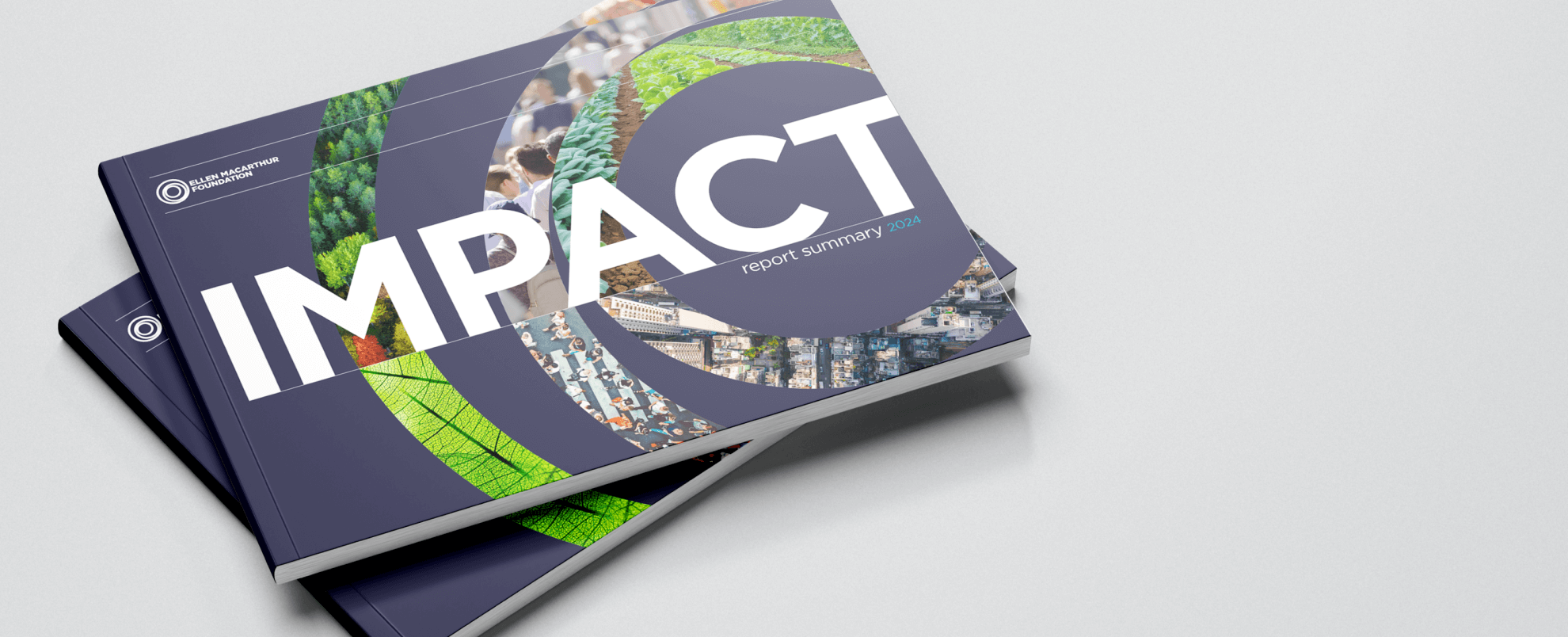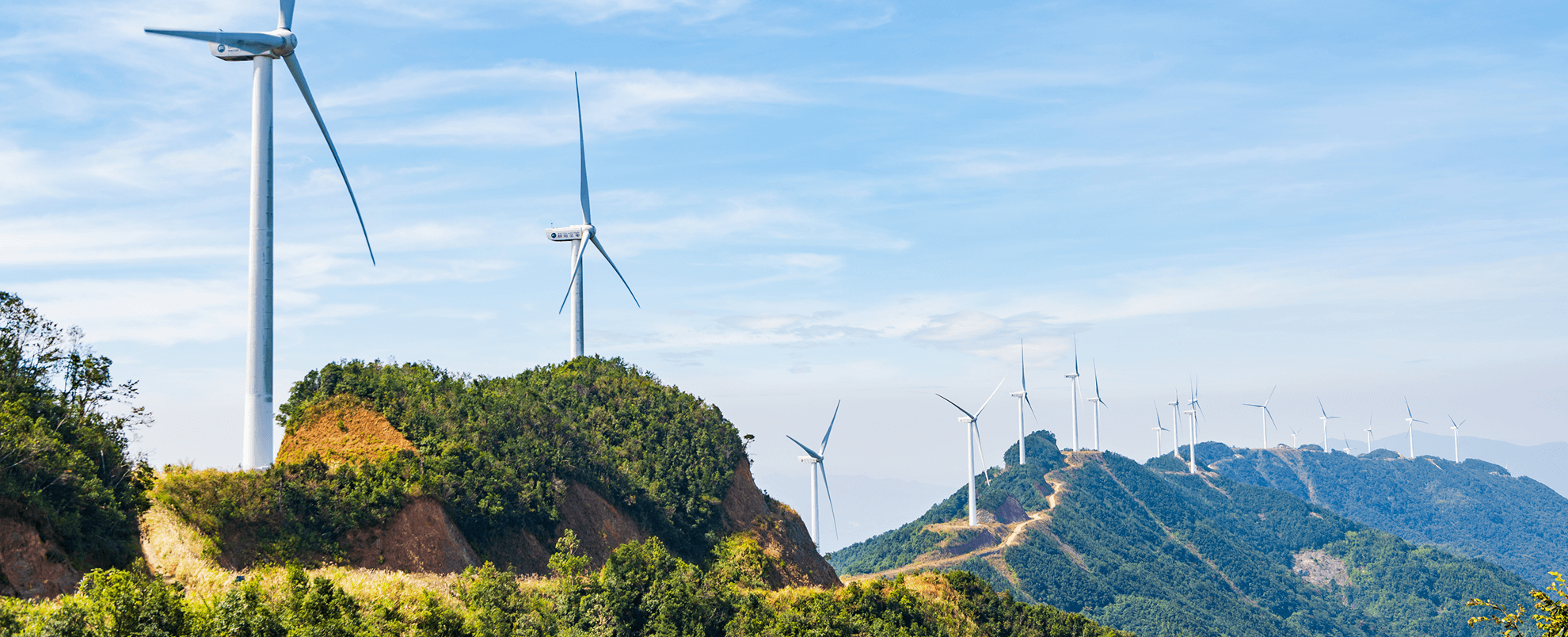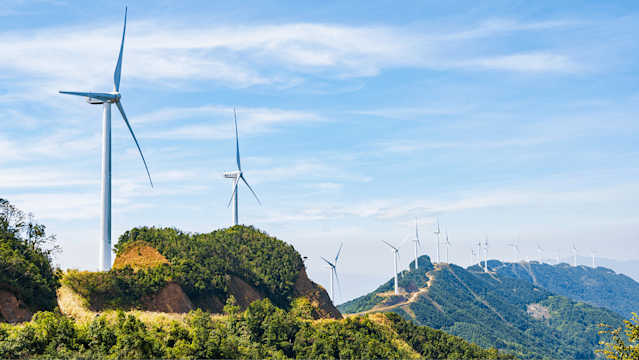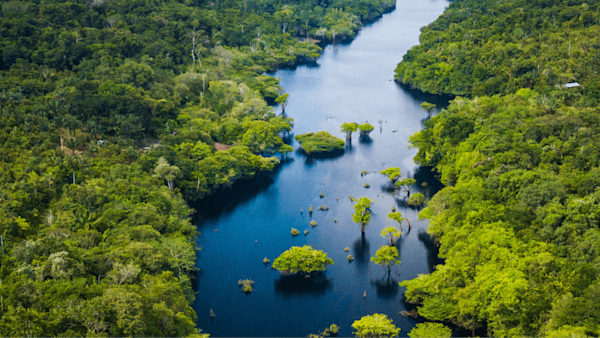This is part of a series of impact stories highlighted in our 2024 Impact Report. To explore more impact stories, see the full collection.
We have experienced a step change in our engagement in China. We have strengthened and expanded our relationships with high-level ministries and high-level decision makers, as the only international non-governmental organisation working specifically on the circular economycircular economyA systems solution framework that tackles global challenges like climate change, biodiversity loss, waste, and pollution. It is based on three principles, driven by design: eliminate waste and pollution, circulate products and materials (at their highest value), and regenerate nature. within China. This is particularly evident in our work to inform negotiations for the global plastics treaty. Given the critical role government policy plays in driving large-scale change in China, these collaborations are vital to advancing circular opportunities.
Circular economy interventions in mobility, residential buildings, and plastics could reduce emissions from these sectors by over one-third in China.
Significant progress has been made in promoting the full circular economy opportunity and showing how it can support the country’s climate ambitions, notably through our latest publication The circular economy: a ‘triple play’ solution for achieving China’s climate objectives. Developed with Tsinghua University and launched at COP29, the report received widespread interest and not only strengthened our partnerships with academia, industry, and government stakeholders, but reinforced our position as a key thought leader in the circular economy. Professor Zhu Daijan of Tongji University said: “This paper provides fresh insights and perspectives; it is not just another paper but tells a compelling China story through the Ellen MacArthur Foundation framework.”
Our pioneering approach is already driving industry action in the renewable energy sector. Our research has shown that a circular approach can help secure the supply of critical raw materials essential for the energy transition. Using these insights, we have engaged directly with the renewable energyrenewable energyEnergy derived from resources that are not depleted on timescales relevant to the economy, i.e. not geological timescales. sector, which has already inspired the establishment of a Decommissioned Wind and Solar Equipment Circularity Committee to recirculate materials from end-of-life infrastructure.
"I have witnessed [the Ellen MacArthur Foundation's] transformative role in shaping and promoting the circular economy globally. EMF continues to be a global leader in circular economy theory and practice, and I look forward to seeing its impact grow even further."
– Professor Zhu Daijan of Tongji University
On the global stage, we’ve highlighted China’s progress and amplified dialogue between major powers on the circular economy. For instance, our event at COP28, in collaboration with the National Center for Climate Change Strategy and International Cooperation of China, explored how a global approach to the circular economy can reduce carbon emissions and build resilience to climate change. In addition, we co-hosted a high-profile session at the 2024 World Circular Economy Forum (WCEF), marking China’s first official presence on the WCEF stage. This demonstrated the convening power of the Foundation and our long-term commitment to fostering enhanced global dialogues. We’re also supporting the renewed EU-China circular economy Memorandum of Understanding and US-China exchanges to showcase how circularity can address the climate crisis. By aligning international efforts, we enable deeper collaboration, reciprocal learning, and transformative action.
In this collection

Breaking new ground
The Ellen MacArthur Foundation's Impact Report Summary 2024
We are a leading global organisation committed to transforming the economy so that it works for people and the environment.


















